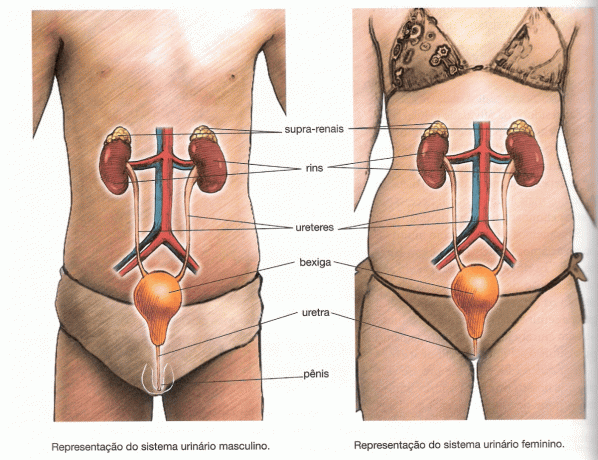Science activity, for 4th or 5th year students, contains an explanatory text about the excretory system and also some questions about the subject.
This activity about the excretory system is available for download in an editable Word template, ready to print in PDF and also the answered activity.
Download this science exercise at:
SCHOOL: DATE:
PROF: CLASS:
NAME:
The excretory system is formed by a set of organs that filter blood, produce and excrete urine. It removes from the blood the final products of cellular metabolism, considered toxic and known as nitrogen excreta, taking them out of the body. The blood collects these wastes and passing through the kidneys is filtered and these wastes are eliminated in the urine.


The excretory system has the function of eliminating the excess of harmful substances to our organism, in order to maintain the necessary balance for the proper functioning of our organism.
The kidneys work as filters, which remove impurities from the bloodstream, our body eliminates these toxic substances through urine and perspiration. Urine forms continuously in the kidney, this process is called diuresis, and accumulates in the bladder.
Sweating, in addition to eliminating toxic substances, also serves as a regulator of body temperature.
The ureters are the tubes that connect the spleen of each kidney to the urinary bladder.
The bladder is the compartment where urine is deposited until it is expelled, it usually holds 250 ml and is formed by smooth muscles.
The urethra is the channel through which urine is passed, both men and women have the urethra. The muscles that press on the urethra, controlling our urge to urinate, opening or closing the urethra canal are the sphincters.
It is very important to drink at least two liters of water a day, as water is essential in the process of eliminating toxins and also in the process of maintaining body temperature.
1) How many and which are the organs of the excretory system?
R.:
2) What is the function of the excretory system?
R.:
3) What is the product resulting from the process carried out in the excretory system?
R.:
4) What are the functions of sweating?
R.:
5) What is the importance of drinking water and what is indicated for daily intake?
R.:
For ACCESS
At answers are in the link above the header.